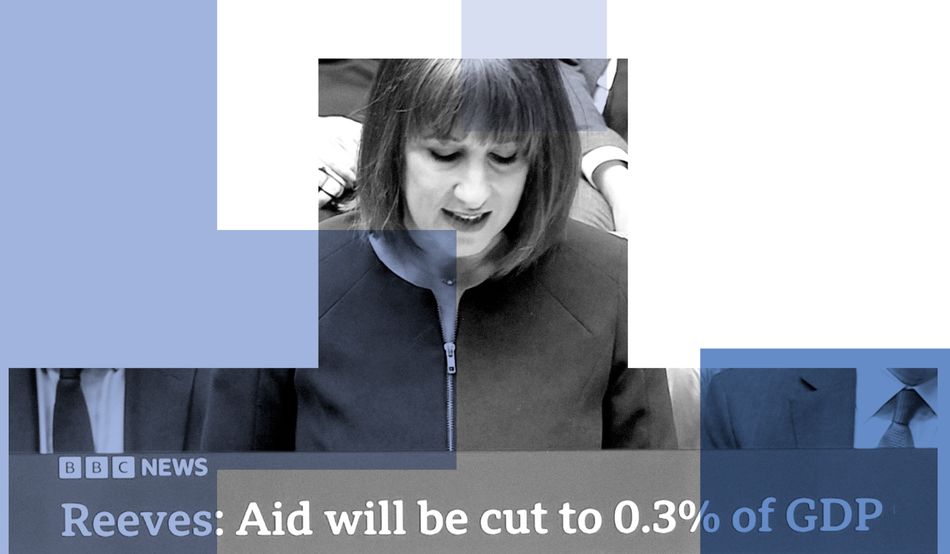The Labour government’s decision to cut overseas aid to its lowest level on record is a harbinger of doom in more ways than we can imagine. A meagre budget of 0.3 per cent of gross national income (GNI) spells certain misery for the world’s most vulnerable. But anyone who thinks the difficulties end there has not been paying attention to the way the world works, the extent to which the fates of populations at home and abroad are intertwined, and the role of soft power in calming globally troubled waters to make life safer and more stable in the UK.
Aid helps people overseas, yes. But it helps us no less.
One thing we should have learned from the litany of crises that have convulsed the world—from Covid-19 and Ukraine, to famine in east Africa and war in the Middle East—is that no one is safe until we are all safe.
Disease and military aggression carry threats of wider conflagration, while the resulting humanitarian suffering drives desperate people to take desperate measures, be it falling prey to nefarious actors in exchange for food and protection or fleeing their homes to find safer shores in numbers that are difficult to control. The daily spectacle of seaborne migrants attempting to enter the UK has turned migration into our number one domestic policy priority.
But the government is missing a trick. In all their (so far unsuccessful) efforts to stop the boats, which rightly requires a mix of domestic and international measures, they have overlooked the golden thread of international aid which connects the dots between our own challenges and problems at source. If we accept that migration flows are an ineluctable ripple effect in an interconnected world, should policymakers not be looking to address the root causes?
We should have learned from the litany of crises that have convulsed the world that no one is safe until we are all safe
The same goes for the government’s top international priority, which is to boost defence capabilities in the face of Russian belligerence, geopolitical uncertainty and galloping global peril.
Against this very precarious backdrop, investing in hard military power is all well and good and necessary, but without soft power to create conditions for stability in fragile settings, the exercise can only go so far. As General James Mattis famously observed, cutting back on aid means more must be spent on ammunition.
It is therefore something of a paradox that prime minister Keir Starmer used the pretext of boosting defence spending to justify tearing into the international development pot which is so critical to keeping us safe. Robbing Peter to pay Paul may play well populistically, but it’s a proverbial shot in the foot.
There is growing evidence to support the link between official development assistance spending and our own security. New research from the Kiel Institute found that improving basic services, for example, reduces the aspiration to migrate. In Sub-Saharan Africa, a marked improvement in public services (such as health and education) was linked to 27 per cent lower intentions to migrate.
Similarly, aid that is used to stabilise fragile regions can prevent renewed conflict that leads to mass movement and far-reaching security repercussions.
The foreign secretary, David Lammy, is keen to assure us that the aid cuts will not thwart ambitions for the Global South, whose fortunes rely ultimately on growth and prosperity, turbocharged chiefly by the private sector through finance institutions such as British International Investment. He is not wrong. But he should reflect that with the aid budget so depleted, there are not enough finances to invest. And that if the objective is to stimulate economic activity, you first need to cultivate a healthy, educated and well-governed population—where girls are not married off as soon as they hit puberty, young children are not dying of treatable diseases and leaders are not lining their pockets with money intended to improve the social lot of their countries.
All of these challenges have been addressed traditionally through a raft of development programmes—vaccinations, education, family planning, technical interventions, nutritional support and, of course, private sector input. Now the Foreign, Commonwealth and Development Office faces excruciating choices as many of these programmes are halted, cut back or abandoned altogether. It is an appalling state of play that will unravel so much of the progress achieved with British leadership as people are plunged back into grinding poverty.
The truth is that British soft power has been sleepwalking into oblivion since Boris Johnson vaporised the Department for International Development.
Today not only have budgets been bashed but the whole concept of soft power has been denigrated and delegitimised through the lens of narrow nationalism capitalising on a beleaguered international climate.
While it is difficult to be optimistic in the near term, I hope that policymakers and those passionate about international development use this time of crisis as an opportunity to answer the following exam question: how will international development recover? The climate may be cold but it should not deter us from putting our best minds together to try to figure it out.
Sooner or later we will realise that we have no choice—Britain’s safety, health and borders will never be secured, so long as misery abounds abroad.












